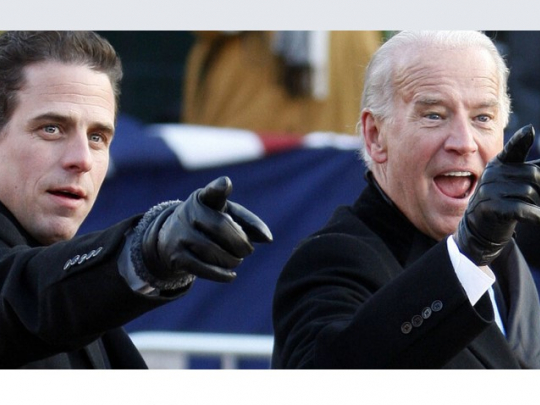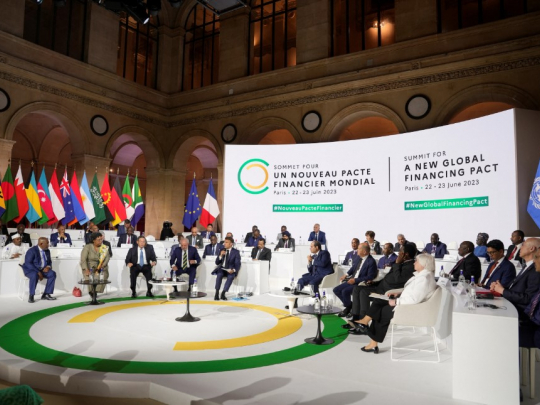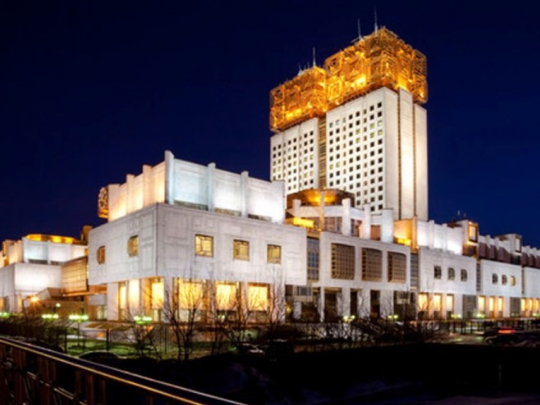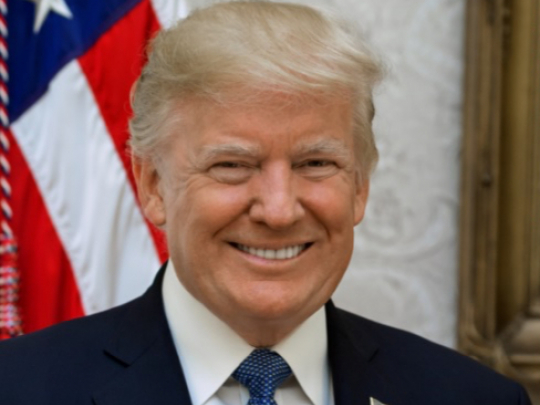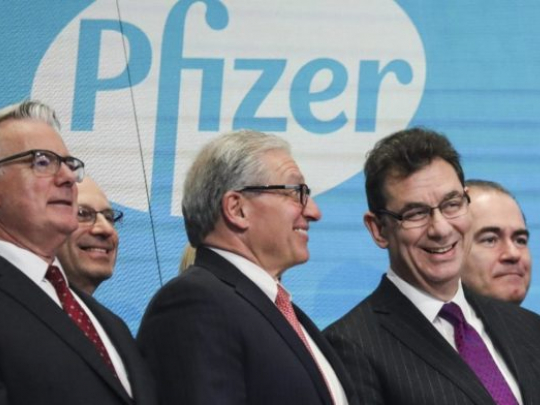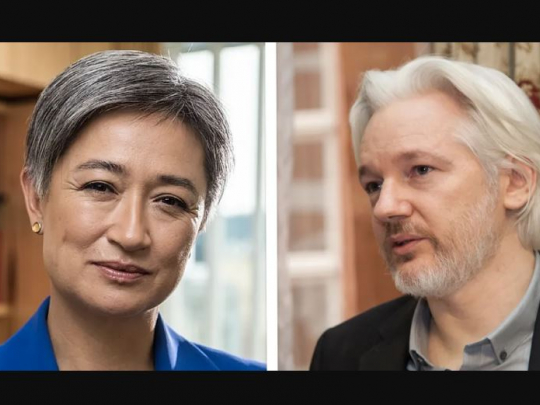The Making of Saudi Inc.
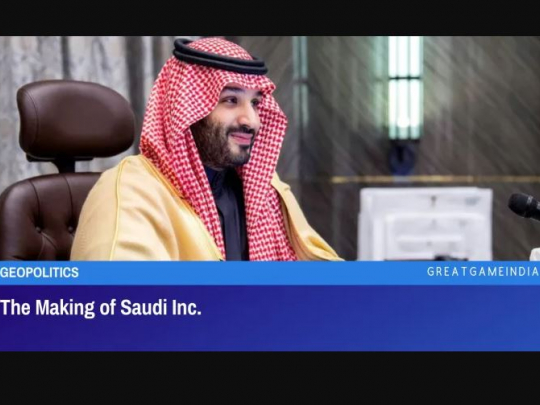
The PIF has already founded 54 new businesses, spanning industries like real estate and luxury cruises, with an investment goal of at least $40 billion a year in Saudi Arabia. This is the story of the making of Saudi Inc.
Within the next few years, an American Executive flying into Saudi Arabia may exit from an airline established by the country’s sovereign wealth fund and book an Uber, in which the same fund has a 4% holding. After being chauffeured around the capital, the Exec may stay at a boutique hotel in a former palace owned by the Public Investment Fund.
They may consume coffee grown through a PIF-led enterprise while attending the PIF’s annual conference, then sign a deal with a PIF-owned military firm. That evening, the executive may go out to eat and see a movie at a facility created by its entertainment branch before returning home without touching a single business unrelated to the PIF.
As Crown Prince Mohammed bin Salman rushes to broaden Saudi Arabia’s oil-dependent economy, the $620 billion PIF, which he heads, is taking the spot light, usurping an illustrious business class to become one of the most influential organizations in a rapidly shifting country. The conservative Islamic kingdom of old is fading, having lived off its oil earnings while prudently investing in secure US treasuries and disbursing lucrative state contracts. This is Saudi Inc. And its self-proclaimed Founder is tearing up the rulebook.
In just five years, the PIF has grown into a major worldwide investor, acquiring US blue chips such as Uber and investing in electric vehicles. It has also ventured into sports, purchasing Newcastle United of the English Premier League and investing $200 million in an international golf business.
This has given MBS, as the country’s de facto ruler is called, more power on the international arena, with Western leaders looking to the world’s largest oil exporter to help moderate rising inflation and inject petrodollars into a failing global economy. US President Joe Biden will visit Riyadh in mid-July, having been compelled to reconsider his threat to make MBS a “pariah” over the assassination of Washington Post columnist Jamal Khashoggi in 2018.
However, the PIF has had the greatest impact at home, where its unique brand of state capitalism has revolutionized the economy. The PIF has already founded 54 new businesses, spanning industries like real estate and luxury cruises, with an investment goal of at least $40 billion a year in Saudi Arabia. Critics assert that it is a component of a larger consolidation of power that has seen Prince Mohammed, 36, seize control over security, domestic, and international issues while imprisoning detractors and silencing independent voices. Saudi CEOs expressed concerns as well, at first claiming they felt outcompeted by a group that was so wealthy and well-connected that few could compete. “MBS does not care too much for the inherited structures of either the Saudi state or Saudi business and wants to build a new Saudi Arabia,’’ said Steffen Hertog, an associate professor at the London School of Economics. “He completely revamped (the PIF) and turned it into the main vehicle for his diversification strategy, bypassing most of the established government and, more visibly, the established private sector.” The PIF, which was established in 1971 as a division of the Finance Ministry, was initially tasked with financing economic growth. It also held a sizeable stake in the Saudi stock market but had little recognition outside of Saudi Arabia.
Then, according to the fund’s website, it was “reborn” in March 2015 and put under MBS. In his privileged universe of thousands of princes, MBS regarded himself as a disruptor. He was only 29 years old when his father became king, and in 2016, he told Bloomberg that he looked forward to tech entrepreneurs like Steve Jobs and Mark Zuckerberg for inspiration. At the time, he asked, “If I work according to their methods, what will I create?” The PIF emerged as a crucial instrument as the prince actively grew his power, allowing him the chance to govern the new Saudi Arabia more like a software company than the cumbersome bureaucracy it had previously been. Yasir Al-Rumayyan, a Saudi banker, was chosen by him to serve as governor. The PIF was at the vanguard when MBS unveiled his Vision 2030 a year later to revamp Saudi Arabia’s economy and reduce its dependency on oil. By 2030, according to MBS, it will have investments worth more over $2 trillion, making it the largest sovereign wealth fund in the world.
The PIF has grown in size since 2017 when MBS dethroned an older cousin to claim the throne, in part thanks to transfers from the central bank and the IPO of a stake in state oil firm Aramco.
As a result, it has gradually eclipsed previous power centers including the finance ministry, economy ministry, and central bank to take the lead as the principal driver of the nation’s economic growth.
The business elite are concerned about this development.
Saudi Arabia has been a monarchy from its inception, but a decade ago, there was more decentralization of authority and significant businessmen had a greater degree of influence.
When Prince Mohammed launched a contentious anti-corruption drive in 2017, detaining scores of royals, businesspeople, and former officials in Riyadh’s Ritz-Carlton hotel, the old economic elite suffered a terrible blow. The majority were charged with unprofessional conduct, under duress to turn over assets, released, and prohibited from leaving the country.
Prince Alwaleed bin Talal, who had long been considered one of the richest people in the world, was dropped from Forbes’ list of billionaires in 2018 as a result of a lack of clarity over what had happened to his wealth. He was once a glitzy traveler, but since being released from the Ritz, he has not left the area. Shortly after, he told Bloomberg that he did not hold any grudges. In May, the PIF acquired a 16.87 percent share in his Kingdom Holding.
A skyscraper he was constructing, which was previously planned to be the tallest building in the world, looks to have come to a standstill. Its partially completed skeleton serves as a reminder that priorities have changed under MBS, who has started new megaprojects through the PIF. The futuristic new city he is creating on the Red Sea, Neom, is the most grandiose of those.
While a new elite has emerged, including Al-Rumayyan, it lacks even the slight independence of the previous one because it is entirely dependent on MBS and mostly follows him in lockstep.
According to Andrew Leber, a researcher at Harvard University who specializes in political economics in the Middle East, Saudi rulers want to foster “the spirit of capitalism among the populace, but they don’t necessarily want a robust, independent private sector.” “There’s more of a sense of, what do we actually need the private sector for? If we can invest directly in particular companies, why do we need to bargain with these outmoded family firms?” In Saudi Arabia, where family enterprises have long depended on lucrative government contracts, a top-down strategy is nothing new. MBS advocated for a market-driven reform when he introduced Vision 2030, a notion that was supported by management consultants and investment bankers who were brought on as key advisers. Saudi Arabia has since adopted capital market reforms, removed barriers to international investment, and begun the process of privatizing state-owned businesses. However, the PIF is operating the vehicle. As early as 2018, Saudi officials were questioned by Kuwaiti retail mogul Mohammed Alshaya at a panel at Davos on whether they were encouraging private enterprises or competing with them. Professionals are indeed quitting the private sector in large numbers in favor of the PIF and allied enterprises, which offer packages that are uncompetitive. A spokesperson for the PIF responded in writing when asked about the strategy: “It’s about developing sectors that aren’t active today, developing ways of business that aren’t active today. PIF is enabling and supporting the private sector to make that transition.”
In a nation where even modest criticism is not permitted, one Saudi executive who spoke on the condition of anonymity said he initially felt worried, even angry, as the PIF expanded and spent billions of dollars he could never hope to equal.
He has recently changed his mind, asserting that the fund revived a faltering economy and a structure that was incompatible with the digital and globalized era.
The businessman compared the past few years to “riding a tsunami” while relaxing by the pool of his modernist Riyadh house, adding he had to handle his own firm more actively but had adjusted and persevered.
In response to Alshaya at Davos in 2018, Finance Minister Mohammed Al-Jadaan stated that the fund was establishing an environment for the private sector to participate in.
“What the government is doing is looking at sectors, industries, specific investments that are either too large for the private sector to take risk on, or are new,” he said.
Many cite the PIF’s acquisition of a controlling interest in US electric vehicle manufacturer Lucid Motors as an illustration of how it is fostering non-oil sectors that would not otherwise take off. Lucid struck an agreement in February to do just that, possibly opening the door for other automakers who Saudi Arabia had long battled to persuade to set up shop there. In an email statement, the PIF claimed that it was acting as a “cornerstone investor” to “crowd-in” and support the private sector. The fund announced that it was making investments in 13 industries that were found to have the potential to give the kingdom a competitive advantage both locally and internationally, produce returns, localize jobs, and quicken the flow of information into the country.
The development of economies all across the world, including economic giants like China and South Korea, was greatly aided by the state. However, both started off as lower-income nations with greater populations and less expensive local labor, according to economists. There is no model for changing an oil-dependent economy while maintaining living standards in Saudi Arabia because it is already a middle- to high-income country. “It’s great as a force for incubation, as a force for transformation,” said Karen Young, a senior fellow at the Middle East Institute in Washington. “The question is: when do you step back?”
- Source : GreatGameIndia




